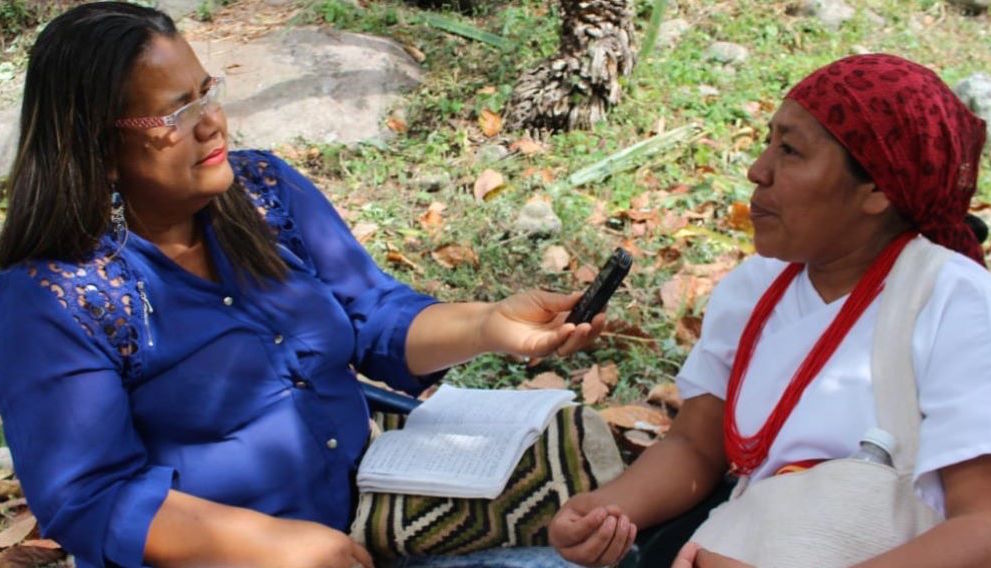It’s a more clandestine and dangerous world when journalists can be threatened with violence, detention and death for doing their job.
The 2019 World Press Freedom Index published by Reporters Without Borders (RSF) points to a serious decline in media freedoms as anti-press rhetoric has created a climate of fear and self-censorship.
The index ranks 180 countries and regions according to the level of freedom available to journalists. It’s a snapshot of media freedom based on an evaluation of pluralism, independence of the media, quality of legislative framework and safety of journalists.
During the launch of the 2019 index, RSF’s executive director Sabine Dolan said, “The scene this year is fear. And the state of journalism and press freedom around the world is declining… but also in the traditional press freedom allies — countries in Europe and in the United States.””
RSF’s secretary-general Christophe Deloire was equally forthright:
“If the political debate slides surreptitiously or openly towards a civil war-style atmosphere, in which journalists are treated as scapegoats, then democracy is in great danger… Halting this cycle of fear and intimidation is a matter of the utmost urgency for all people of good will who value the freedoms acquired in the course of history.”
Of 180 countries in RSF’s index, only 24 per cent are classified as “good” or “fairly good” compared to 26 per cent in 2018. The Middle East and North Africa (MENA) region continues to be the most dangerous area for journalists as they face violence due to ongoing conflicts while also being deliberately targeted, imprisoned or killed.
Canada, with a ranking of 18, is in the top 20, but still has “room for improvement,” says the report. “A VICE News reporter is still fighting a court order compelling him to hand over communications with his source to the Royal Canadian Mounted Police, while another journalist for The Independent is facing criminal and civil charges for his coverage of protests against a hydroelectric project in Labrador,” it notes. Last July, Vice Media lost its appeal to block an earlier ruling to turn over the background notes of its reporter, Ben Makuch, to the RCMP.
The report also expresses concern over amendments to the controversial Bill C-51, which it says, “uses national security as an excuse to chill the free flow of information online.” It adds that the agreement between Postmedia and Torstar — Canada’s largest publishers — to swap more than 40 local community newspapers, most of which shut down, “risks compromising media pluralism in the country.”
The Americas have seen the biggest drop in their press freedom scores. Nicaragua fell 24 places to 114. In the U.S., the media climate is now classified as “problematic” as last year media organizations across the country received bomb threats and suspicious packages. And, according to the Committee to Protect Journalists (CPJ), it’s a nation where over 11 per cent of the current president’s tweets insulted or criticized journalists and news media.
In 2020, 40 years after the MacBride Report was first published by UNESCO, its call to protect journalists remains strong. The right to communicate and receive news and information “depends largely on the freedom of all those involved in the media to exercise objectively their role… without interference and in complete security.”
Democracy fails when heads of state, populist politicians and unregulated corporate interests are allowed to ride roughshod over freedom of the press.
Philip Lee is WACC general secretary and editor of its international journal Media Development. His publications include The Democratization of Communication (ed.) (1995), Many Voices, One Vision: The Right to Communicate in Practice (ed.) (2004); Communicating Peace: Entertaining Angels Unawares (ed.) (2008); and Public Memory, Public Media, and the Politics of Justice (ed. with Pradip N. Thomas) (2012).
WACC Global is an international NGO that promotes communication as a basic human right, essential to people’s dignity and community.
Image: Tayrona Estereo/WACC



